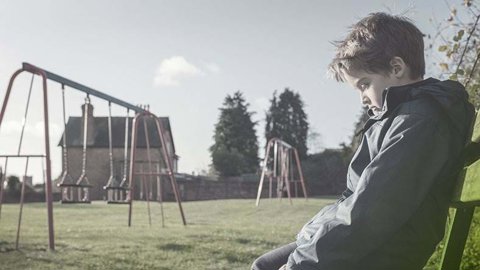Examples of Institutional Abuse
Organisational or institutional abuse constitutes a grave concern that extends beyond mere physical violence. This form of abuse often manifests in various insidious ways, primarily stemming from inadequate processes, practices, and structural deficiencies within the institution. In the United Kingdom, the relevant legislation that addresses the safeguarding of vulnerable adults and children is the Care Act 2014.
The spectrum of organisational abuse encompasses a multitude of distressing scenarios, making it imperative to grasp its diverse manifestations. These include but are not limited to:
- Physical Abuse: Infliction of harm through physical force, resulting in injury, anguish, and fear.
- Sexual Abuse: Instances of non-consensual sexual acts or sexual harassment within the institution.
- Verbal Abuse: The use of language to demean, intimidate, or belittle individuals, causing psychological distress and emotional trauma.
- Inappropriate Confinement or Restraint: Instances where individuals are inappropriately restricted in their movements, denying them their right to freedom and autonomy.
- Lack of Personable Care or Routine: Neglectful care practices, which may include inconsistent routines, result in the deprivation of the comfort and predictability that individuals require.
- Disrespecting Independence, Dignity, or Choice: The abuse of power or control over individuals can lead to an environment where their fundamental rights to independence, dignity, and personal choice are undermined.
- Deprived or Bleak Living Conditions: Institutional environments that are unhygienic, overcrowded, or otherwise unsuitable for individuals can inflict considerable harm.
- Inappropriate Assertion of Power or Control: Unwarranted exertion of authority by those in charge can subject individuals to maltreatment, perpetuating their vulnerability.
- Neglectful Medical Procedures and Treatments: Substandard healthcare practices within an institution may expose individuals to needless suffering, posing a severe risk to their well-being.
It is crucial to recognise that each case is unique, and individuals may experience varying levels of abuse within the same organisation or institution. By acknowledging the different levels of abuse, we can better comprehend the breadth of the issue and work towards effective solutions and support systems.
Where can Institutional Abuse Happen?
Institutional or organisational abuse is not confined to a single setting; it can be widespread, extending beyond the home. While there are instances where it can occur within a domestic context, it predominantly occurs in locations external to the victim’s residence. It is essential to identify these susceptible environments and acknowledge the potential risks they pose.
- Care Homes: Institutional abuse is a recurrent concern within care homes, where vulnerable residents (children or adults) often depend on the staff for their well-being and security. This dependence on caregivers can make residents more susceptible to neglect, mistreatment, or exploitation, as they may be unable to defend themselves.
- Churches: Religious institutions, including churches, are not immune to the presence of institutional abuse. Clergy, religious leaders, or fellow congregants may misuse their positions of authority to perpetrate misconduct, particularly affecting parishioners who place their trust in these religious settings.
- Schools: Educational institutions are another domain where institutional abuse can occur. It may take the form of abusive behaviour by educators or fellow students, infringing upon the rights and well-being of pupils. In such settings, young individuals may be particularly vulnerable to maltreatment.
- Sports Clubs and Leisure Centres: Sporting organisations and leisure facilities are not exempt from instances of organisational abuse. Coaches, trainers, or other authority figures within these environments may exploit their roles to engage in abusive conduct, adversely impacting those under their guidance.
- Prisons: Within correctional facilities, institutional abuse is a significant concern. Inmates, who are often in a vulnerable position due to their incarceration, may be subjected to maltreatment or abuse by correctional officers or fellow detainees.
- It is important to recognise that institutional abuse can affect not only those receiving care or services within these environments but also employees and volunteers. In some instances, staff members or volunteers who are supposed to uphold safety and well-being may themselves become victims of abuse, further highlighting the pervasive nature of this issue.
Understanding the range of environments where institutional abuse can manifest is crucial for implementing safeguarding measures and supporting those who may be at risk or have experienced such maltreatment. Vigilance and awareness in these settings are vital to ensure the protection and welfare of all individuals involved.
What causes Institutional Abuse?
There is no single cause of organisational or institutional abuse but it’s often the result of:
- Inadequate training of staff
- Poor supervision
- A lack of or weak communication
- A culture which discourages visitors or new ideas and management styles
- A lack of or inadequate support from management
In some cases, institutional abuse can span years or even decades because of a damaging culture where abuse has been ignored, overlooked or covered up to protect the reputation of the institution. In recent years, many instances of religious abuse and child abuse in schools have been exposed.
Signs of Institutional or Organisational Abuse
As every case is different and abuse usually takes place behind closed doors, it’s not always easy to spot the signs of institutional abuse.
Some things to look out for include:
- An unsafe, unsanitary or overcrowded setting
- A regimented and strict routine e.g., meal times, bed times, washing and going to the toilet
- Isolation or withdrawal from a community or family
- Individuals not being treated with respect and dignity
- No respect for religious or cultural beliefs and customs
- Adults being treated as though they’re children
- Physical marks e.g., cuts and bruises
- Inconsistent and casual decision making by staff members and/or the organisation
If you’re worried that a friend or family member is being abused in an institution or organisation, you should report your concerns to the person in charge of the institution or, where appropriate, the regulator such as OFSTED or the Care Quality Commission. If you believe that a crime such as an assault has been committed, you should report your concerns to the police.
Further Help and Support
If you or someone close to you has been affected by organisational or institutional abuse, help and support are readily available. The journey towards recovery and seeking justice can be challenging, but it is a path that no one needs to navigate alone.
Survivors of Abuse: For those who have experienced institutional or organisational abuse, acknowledging the impact of these traumatic events is a significant step towards healing. It's natural to feel overwhelmed, confused, or distressed. Seeking professional support is a vital part of your recovery. Our team of dedicated Abuse Solicitors is here to assist you. We offer a safe space to discuss your experiences and concerns, providing expert guidance tailored to your specific situation.
Access to Specialist Support Services: The effects of institutional abuse can be profound, often extending beyond the immediate aftermath of the incidents. These experiences may have lasting emotional, psychological, and physical consequences. It's vital to connect with specialist support services that can address your unique needs. Our Abuse Solicitors can refer you to these services, ensuring you receive the comprehensive support required for your journey to recovery.
Exploring Legal Avenues: In some cases, seeking justice through legal channels is an important aspect of the healing process. Our team are experienced in navigating the complexities of abuse claims. We can provide you with advice on the legal options available to you, including the possibility of pursuing compensation for the harm you've endured.
Support for Survivors of Sexual Abuse: Survivors of sexual abuse face unique challenges in coming forward and sharing their experiences. We understand the sensitivity and courage required to discuss such deeply personal matters. When you are ready to talk, we are here to listen without judgement or pressure.
If you're a survivor of sexual abuse, when you're ready to talk, we're ready to listen
Fill in your details for a Free, Confidential, No Obligation chat with one of our team.








